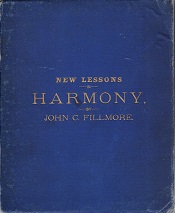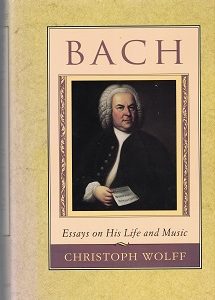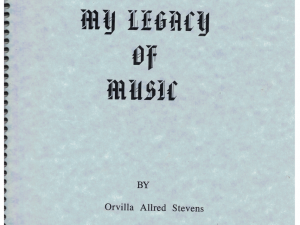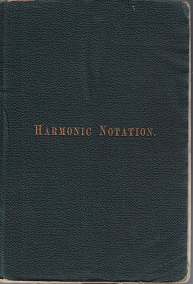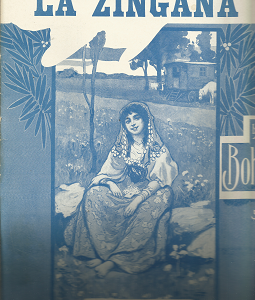Between History and Nature: Theories of Material In European Serialism
$10.00
Unbound thesis. Three holes punched for a binder. There is little to no wear. Clean text.
A dissertation submitted to the Department of Music and the Committee on the Graduate Studies of Stanford University in partial fulfillment of the Requirements for the Degree of Doctor of Philosophy. May 2006.
Abstract:
Composers and music theorists working in Europe in the 1950s and 1960s accorded the technique of serialism unrivaled aesthetic prestige. Although the term was employed with a diversity that frustrated a comprehensive definition, “serialism” in Europe was most commonly understood as a method of organizing each of the basic elements of music (typically pitch, duration, loudness, and timbre) into fixed, graduated series and using these series together as the basis for musical composition. More than a mere technique, however, serialism represented nothing less than a worldview, and this world-view remained intact as the technique developed and changed. The world-view was characterized by the ideals of the period – a critical response to music and politics of the immediate past, a desire for rational systems (and the objectivity they were thought to guarantee), a poetics modeled on scientific experimentation – and these ideals were brought together and given logical, or at least narrative, coherence by a philosophy of history.
Central to the postwar discourse on serialism were theories of musical material. In their efforts to dismantle traditional compositional techniques and build a new music from the most basic elements, many postward composers and theorists seized upon the concept of musical material and invested it with the intellectual concerns of their time. Theories of material are, therefore, essentially interdisciplinary: they frame the arena in which aesthetics, philosophy of history, and, in some cases, sociological theory are brought to bear upon compositional technique. This disciplinary richness is often laced with appeals to history and nature, which are used to justify the prescriptive and proscriptive import of theory.
This dissertation examines theories of musical material from the postwar period, analyzes their explicit and implicit content, and shows how they are informed by conceptions of history and nature. Fundamental links between material, history, and nature emerge in the etymology of the word “material,” which is reconstructed in chapter one. Although it figured in music theoretical texts longs before the postwar period, the concept of material became essential to the discourse on postwar serialism because of its central role in the music philosophy of Theordor W. Adorno. No philosopher was more widely read by or had more influence upon postwar serial composers than Adorno – despite the fact that his musical ideal was rooted in a past the younger generation was desperate to overcome. His interaction with these musicians was a significant part of his activities as one of the most visible intellectuals in Europe after the war. But his concept of material is significant for two additional reasons: first, the theoretical complexity and interdisciplinary breadth that shape his conception of material far exceed any prior treatment of the topic; and second, his writings challenge the belief that musical material is given by nature, which had been the most widely held view previously, and claim instead that it is defined by history. The second and third chapters of this dissertation present a detailed study of Adorno’s theory of musical material and an account of the complex history of his reception among postwar composers.
Adorno had a profound impact upon the discourse of European serialism, and his writings triggered the widespread theoretical engagement with material in the 1950s and beyond. Paradoxically, however, composers typically extracted the words “progress” and “material” from his philosophy only to equate these with the search for a materia prima thought to be given by nature and untouched by history. The search for such new musical materials was seen as a kind of research that would push history forward, and the material itself provided the concrete gauge for this progress. Theories of material are the key to a critical understanding of serialism in this period, for they provide the space in which its principal concerns coalesce. In fact, a large part of the history of European serialism could be effectively written from the perspective of the discourse on material, and chapter four presents this history from this perspective. There are no extensive studies of postwar theories of musical material. This dissertation aims to remedy that lack and to demonstrate the significance theories of material had for European serialism.
1 in stock
Description
music dissertations thesis musical doctor of philosophy

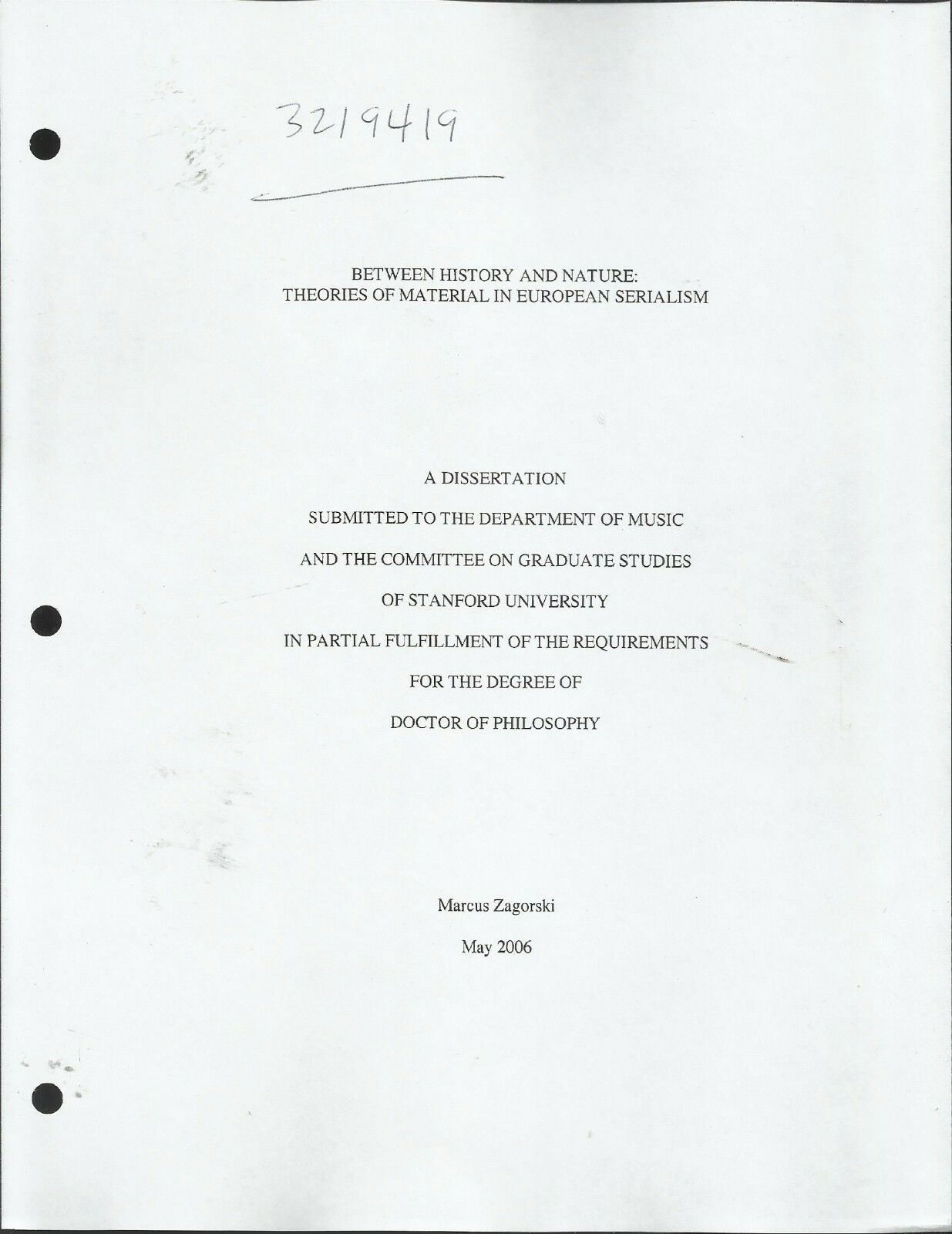

![Nelson Eddy – Signed by Gail Lulay – [America’s Favorite Baritone]](https://ebornbooks.com/wp-content/uploads/2018/06/Nelson-1-300x225.jpg)


